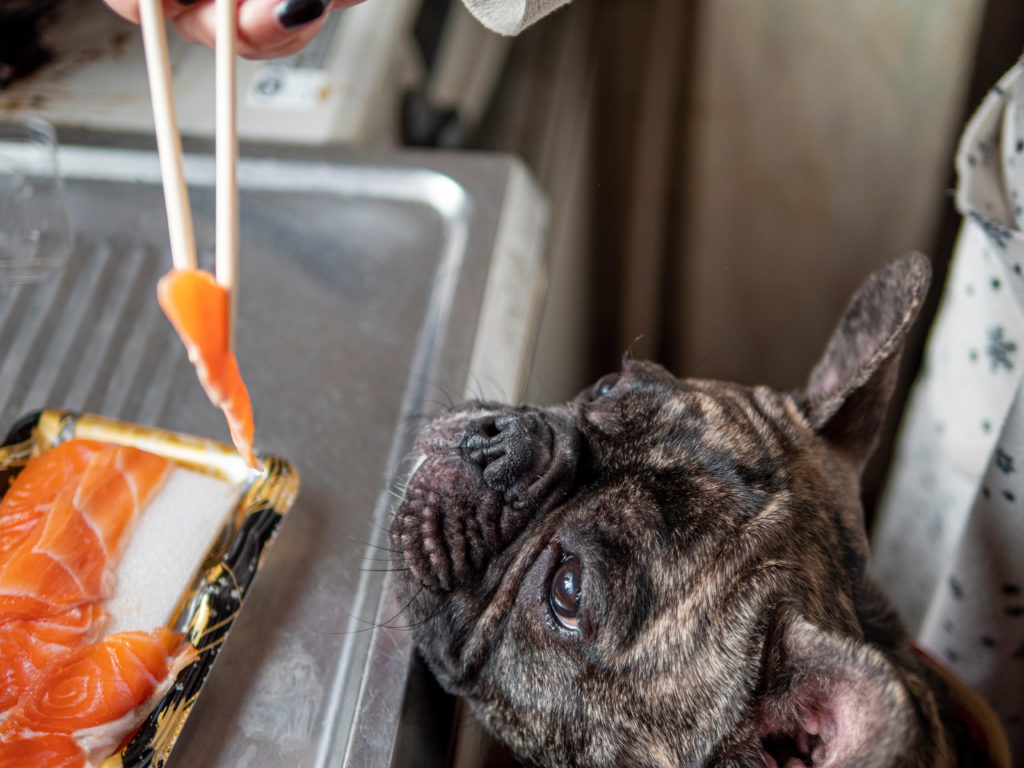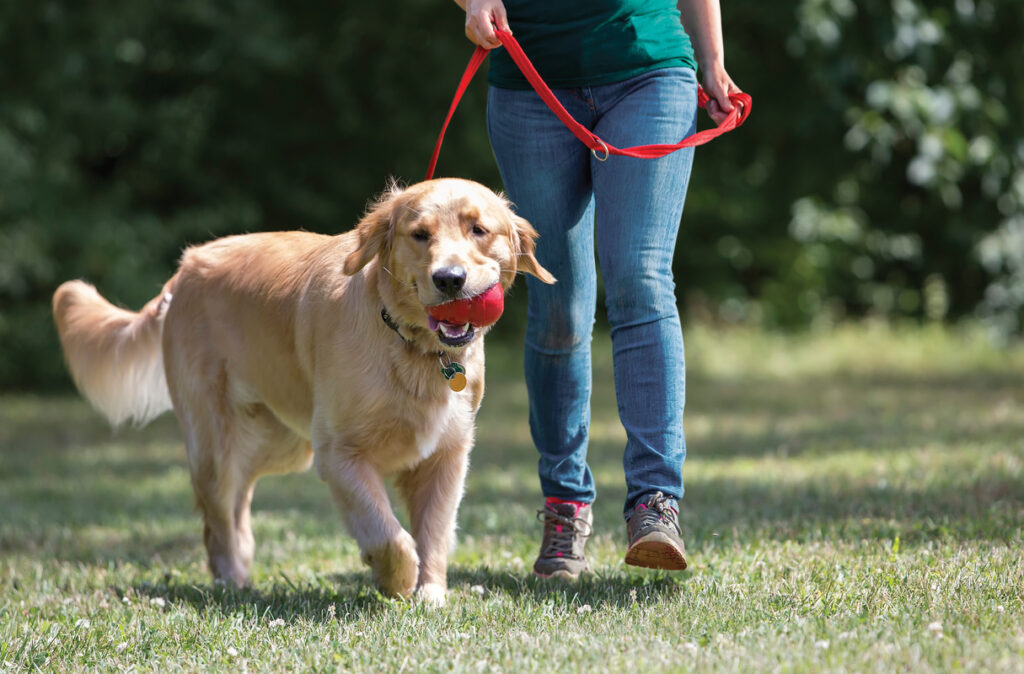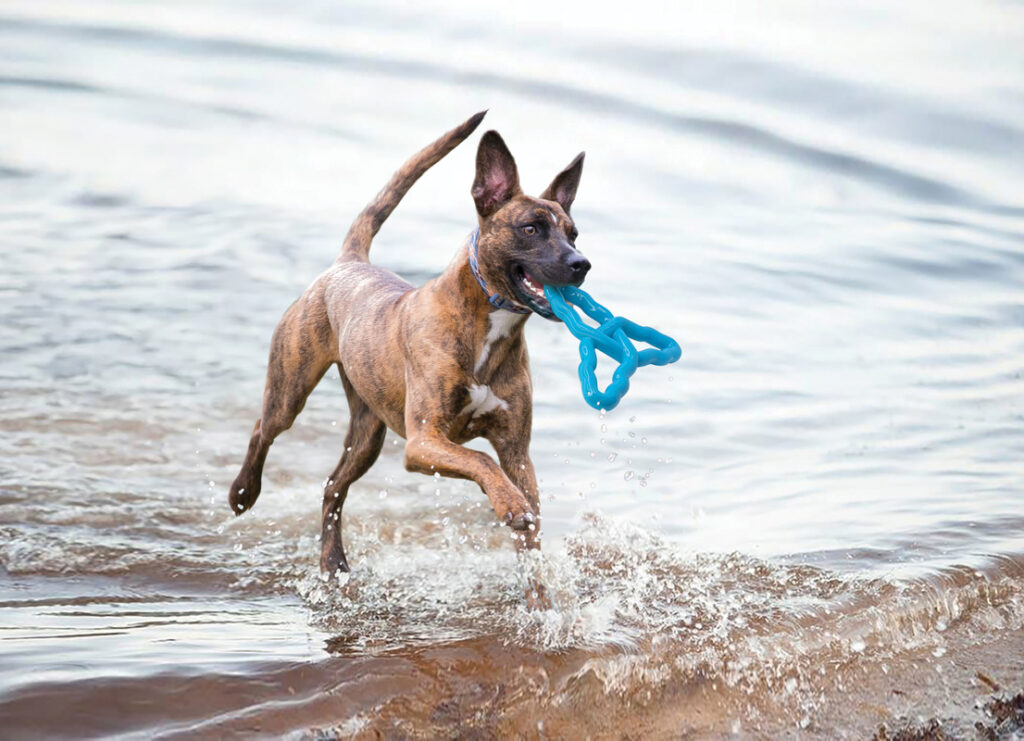Salmon skin rolls may be one of your favorite sushi rolls, and we have to admit it is one of ours too! We know that salmon itself is a healthy protein for humans, and we also see salmon being featured as the main ingredient in different dog foods these days.
What about salmon skin, though? Is it safe for dogs to consume? Let’s take a look at some foods our dogs can tolerate and whether or not that includes salmon skin.
What Foods Can My Dog Tolerate?
We may also be guilty of giving our favorite furry pals a little morsel of what we are eating from time to time, but we always want to be careful of what we give our dogs. Their tummies and bodies cannot handle the same ingredients that we regularly consume. Being a pet parent means knowing what foods your dog can tolerate, so when the strength to say no to those pleading eyes fades, you are tempted to not give in.
Proteins like chicken, lean beef, turkey, and fish are all great sources of nutrition for our dogs. We understand the feeling of wanting to share, but it’s definitely best to steer clear of sharing food that has been seasoned or covered in a sauce.
Your dog may enjoy fruits like apples and blueberries, but since fruit is high in natural sugar, this should be a special occasion treat, like when enticing your dog to take a bath. Vegetables like plain pumpkin and carrots are yummy and can be a special add-on to your dog’s normal kibble, but make sure to ask your vet first.
As always, your best bet for nutritional guidance is to refer to your pet’s veterinarian. Your veterinarian will also be able to let you know what foods dogs can absolutely not have. This is equally important, as we don’t want to cause any digestive upsets in our pups. No matter how sad those puppy whimpers are, sometimes we have to just say no.
What About Mercury in Fish?
Too much of a good thing can be a bad thing. Mercury intake can be a concern when consuming fish, as all seafood and fish usually contain trace amounts of mercury. Thankfully, the use of mercury in health and farming practices has been reduced. The amounts of mercury found in humans and animals have come down in recent years as well.
However, mercury bioaccumulation in animals is a concern. This occurs when a larger fish consumes a smaller fish, and then that fish is consumed by an even bigger fish. Mercury is not easily broken down by the body, so as fish after fish is gobbled up, so is the mercury.
Large, predatory fish like Swordfish and King Mackerel can contain the highest amounts of mercury in the fish world, so limited consumption is recommended for these certain species who are at the top of the fish food chain.
Even though the use of mercury in health and farming practices has been reduced, mercury poisoning can still occur in animals, albeit rare, especially if their diet only consists of fish, and they eat lots of it.
Mercury saturation in a dog’s body can negatively affect the brain, digestive system, and renal system. Signs of mercury poisoning include a lack of coordination, abdominal discomfort and/or swelling, and the inability to urinate. These changes are irreversible and treatment may not be effective.
It’s not all murky waters — Fish is still a healthy protein, containing high levels of Omega-3 fatty acids, which can aid in the reduction of inflammation, promote joint health, and keep your dog’s skin healthy and coat glossy. Omega-3s also keep the mind alert and sharp.
What About Dog Food Containing Fish?
In recent years, dog food has featured salmon as the ultimate protein instead of chicken, lamb, or beef. This is fantastic for changing things up for your pup when they are just tired of the same chicken-flavored kibble day after day. You would certainly grow tired of eating the same daily meal for breakfast, lunch, and dinner. Your pup may feel the same and probably enjoys the change.
Some of our dogs ] have sensitive skin and tummies. Salmon dog food can be just the ticket if your dog doesn’t tolerate other types of protein. If your dog has dry or itchy skin, the nutrients in salmon can have your dog’s coat glowing with a healthy sheen.
If your dog does eat salmon dog food, you may be tempted to confiscate their food bowl after reading about mercury and what can happen to your dog if they ingest too much. However, we have some good news on the salmon dog food front.
A study found that only a small portion of dog foods sampled for mercury detected low levels of the metal. Out of 24 types tested, only three were shown to have any detectable levels. According to one of the researchers, the levels detected were unlikely to cause any negative effects on the dog diners.
Rest assured, your pup can continue to crunch on their favorite salmon kibble. Even if your dog doesn’t eat an all-fish diet, you can add salmon oil to their food for the added nutritional benefits. We also know that our pups love the scent of Eau du salmon on their kibble and will happily crunch away.
Of course, you can take any concerns to your veterinarian, who can give you the best info going forward about what your dog consumes.
Can Dogs Eat Salmon Skin?
We know that salmon itself is a healthy protein. We also know that chicken is a healthy protein, but veterinarians sometimes advise against feeding our dogs chicken skin because it is too rich and fatty. If fried or heavily seasoned, chicken can cause canine digestive problems, like vomiting and diarrhea.
So what does that mean about salmon skin?
If salmon is on the menu for your dinner (invite us, please!), you’ll want to set aside a small, unseasoned piece for your pal as a special treat. Your pooch will be glad to know they can safely eat the salmon skin as long as the fish is fully cooked and not fried or heavily seasoned. Wild-caught salmon is also the best to serve, as these lucky fish were able to swim unencumbered.
Just like the salmon itself, salmon skin is full of nutrients. The skin is rich, so make sure it is a small piece. Plus, it’s critical to remove any fish bones ahead of time. Despite the myth of dogs loving to chew on bones, salmon bones can get lodged in a dog’s throat or intestinal tract.
The most important thing is to ensure that the salmon is thoroughly cooked. Raw salmon can contain some yucky things like worms and bacteria that can make your pup not feel so well. If your dog consumes raw salmon that contains a parasitic flatworm infected with a bacteria called Neorickettsia, this is called salmon poisoning.
Symptoms typically develop within one week of ingesting raw salmon and can cause vomiting, diarrhea, weight loss, muscle tremors, seizures, difficulty breathing, among others, and can be fatal if not treated. Cases of salmon poisoning are usually treated with antibiotics. If you suspect your dog has consumed raw salmon, make an appointment with your veterinarian immediately so they can run the necessary tests and prescribe treatment if required.
If your dog is the outdoorsy type and likes to swim in the river or pond, make sure that they don’t consume raw fish. If you do catch any fish, make sure that any pieces you may cut off while cleaning the fish stay far away from those sneaky snoots.
Ultimately, a small piece of salmon would make a fantastic treat for your pup’s birthday pawty, and they’ll love having a piece to themselves.
KONG CLUB – A Fintastic Idea
Here’s the top catch of the day: we promise that you’ll love being a part of the KONG Club if you are a pet parent. We offer monthly subscription boxes that will keep you and your buddy waiting by the mailbox.
Your furbaby will enjoy their new toys and treats; maybe a package of Salmon Bites will end up in the box? You will enjoy the tips, tricks, and recipes that will keep you in the know about pet health centered around a building block of wellness each month.
While salmon and salmon skin are great sources for Omega-3s that keep your pup’s mind sharp, you’ll want to keep that mind engaged with our carefully curated and designed KONG Toys. We love knowing that your dog’s natural instincts will be triggered by our toys. Your dog will feel mentally stimulated and engaged, and boredom will not be afloat in your home!
Although we cannot recommend a sushi date with your furchild, incorporating a little cooked salmon in your dog’s diet may be a healthy and tasty way to help your dog meet all their nutritional needs (with your veterinarian’s approval).
Sign up today and know that your favorite furry buddy will have a fin-tastic time with their monthly rotation of new toys and treats!
Sources:
What Kind of Human Foods Can Dogs Eat? | Nasa Pet Hospital
What to do about mercury in fish | Harvard Health
Mercury Poisoning in Animals | Merck Veterinary Manual
Responses of dogs to dietary omega-3 fatty acids | NCBI
Preliminary study suggests mercury not a risk in dog foods | University of California
Holiday Foods to Avoid Feeding Pets | Family Veterinary Clinic



